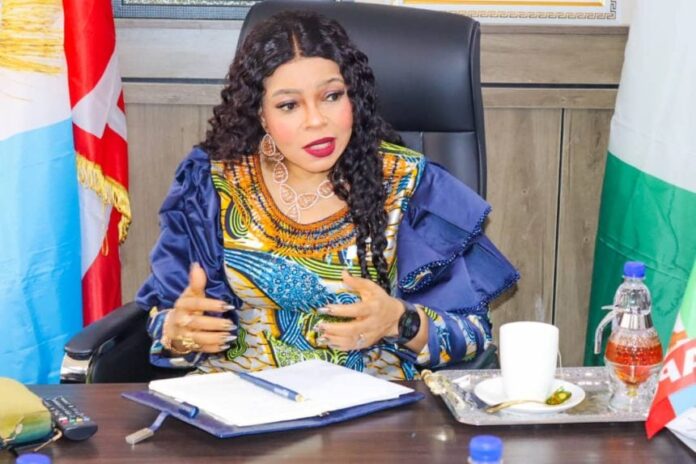BY JENNIFER EZIMAKOR
The National Women Leader of the All Progressives Congress (APC), Dr. Mary Idele Alile, has urged Nigeria to amend its constitution to reserve seats for women in the National Assembly, describing the reform as both a political necessity and a moral obligation.
In a statement on Sunday in Abuja, Alile said the absence of legal guarantees has kept Nigerian women largely excluded from shaping national laws, with their voices “often echoing like whispers in a crowded hall.”
She warned that without deliberate action, the country would continue to lose women’s perspectives, leadership, and ideas in governance.
“This is not merely a statistic, it is a moral wound,” she said. “A country that silences half of its population can never hear the full truth about itself.”
Citing examples from other African nations, Alile noted that Rwanda, Senegal, and South Africa have advanced gender inclusion through legislation, reaping the benefits in policymaking and governance.
Rwanda, she said, now holds over 60% female representation in parliament, not because women pleaded for space, but because the nation recognised it could not heal or prosper without them.
She argued that reserved seats are not a favour to women but a duty of a fair society, pointing to the systemic barriers Nigerian women face; from political godfatherism and financial hurdles to societal stereotypes and an intimidating political climate.
“We lose more than elections when women are kept out. We lose ideas that could save lives, compassion in policy-making, and balance in governance,” she said.
Research, she added, shows that parliaments with higher female representation perform better in areas like education, healthcare, environmental protection, and anti-corruption.
Calling for immediate action, Alile urged President Bola Ahmed Tinubu, the National Assembly, political parties, civil society, and citizens to push the reform forward.
“Every year we postpone this reform, we are telling millions of Nigerian girls that their dreams must wait. And justice delayed is justice denied,” she said.
She concluded with a challenge: “The question before Nigeria is not whether women deserve a seat in parliament — history has answered that. The real question is whether we have the moral courage to give them that seat now.”

